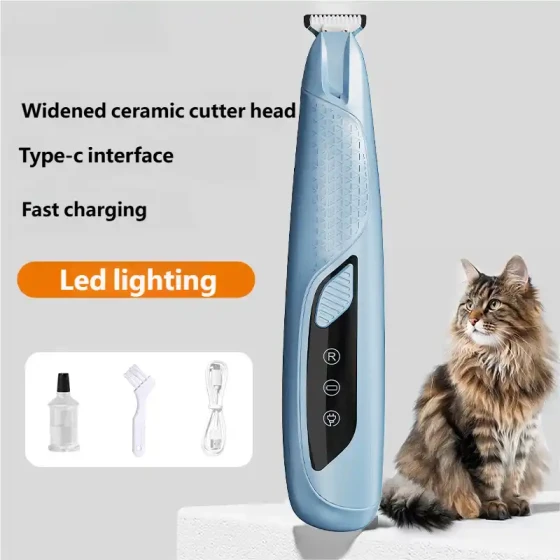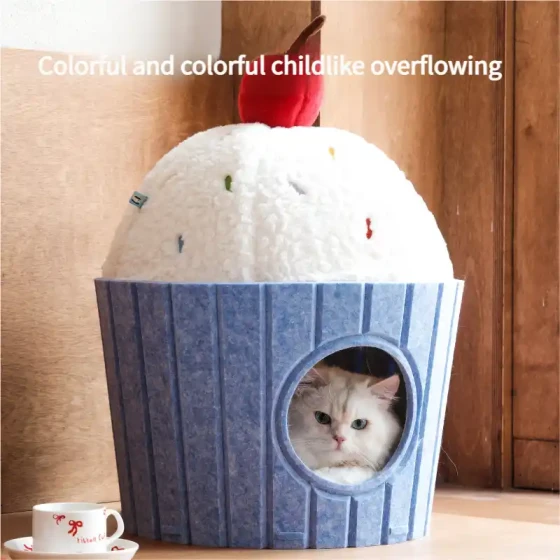What to Do If Your Cat Is Missing_Full Guide to Finding Cats
Losing a cat is a nightmare that many pet owners dread. Don’t panic! If your cat accidentally switches to "exploring the world" mode, mastering scientific and effective search methods can greatly increase the chances of finding your beloved cat. Remember, most lost household cats, especially neutered ones, usually don’t run very far and are often found within a short distance from home.

What to Do If Your Cat Is Missing: Full Guide to Finding Cats
Although cats are agile and curious, they often feel scared and anxious in unfamiliar surroundings, and their first reaction is to find a place to hide. Therefore, once you discover your cat is missing, stay calm and act immediately.
First Step: Carpet-style Search of Home and Surroundings
Don’t assume your cat has definitely run far; it might just be hiding in unexpected corners of your home. First, conduct a thorough carpet-style search of the house. Check all possible hiding places such as:
- Under the bed, under the sofa, deep inside cabinets.
- Inside household appliances like washing machines and dryers (make sure it’s safe before checking!).
- In wardrobes, drawers, or cardboard boxes.
- Attics, basements, garages, storage rooms.
- Any narrow, dark, or concealed spaces.
- If your home is under renovation, don’t forget to check under floors or holes in walls.
While searching, gently call your cat’s name and create familiar sounds, such as shaking a treat bag or food bowl; hearing these sounds might prompt it to appear.
If not found indoors, immediately broaden your search to the surrounding area.
- Check yards, gardens, and bushes.
- Look under cars and inside wheels.
- Corners, crevices, and drainage ditches.
- Neighbor’s yards, garages, and sheds (with neighbors’ permission).
- High places are also favorite spots for cats; don’t forget to check trees or rooftops.
Tip: Most lost household cats, especially those not used to going outside, are found within 500 meters of home, and many are hiding in nearby houses.
Expand Search Area: Use Scent and Timing
Cats have an acute sense of smell, an essential guide to finding their way home. Try the following methods to attract your cat using scent:
- Place your cat’s used litter box near the door; familiar scents can help guide them. Some suggest sprinkling used litter along possible escape routes but watch for hygiene issues.
- Place your cat’s bed, blanket, or clothing with your scent near the door or in the yard.
- Put some strong-smelling foods your cat likes, such as canned food or treats, near the door or near where it went missing. (Note: this might attract stray animals, so place at night and retrieve in the morning.)
Choose the right time: Cats are usually more active from dusk to dawn, when there is less external disturbance and it’s quieter. Searching at night with a flashlight can help since light reflects off cats’ eyes, making them easier to spot.
Broadly Share Information: Get More People to Help
“Strength in numbers” applies equally to finding cats. Promptly let more people know your cat is missing.
- Create a Lost Cat Poster: A clear and eye-catching poster is critical. It should include:
- Clear, recent photos of the cat (multiple angles).
- Cat’s name, breed, gender, age, size, fur color, eye color, and any distinctive marks or habits.
- Time and place where it went missing.
- Your contact information (phone should be kept available).
- Consider offering a reward to encourage assistance (beware of scams).
- Post the Lost Cat Notice: Put posters in prominent locations near where the cat was lost, such as:
- Community bulletin boards.
- Nearby shops, supermarket entrances.
- Pet stores, veterinary clinics.
- Places with heavy foot traffic.
- Online Assistance: Use the power of the internet.
- Post in local social media groups (WeChat groups, QQ groups, Douban groups, Xiaohongshu, TikTok, etc.). Many cities have dedicated pet loss support groups.
- Use pet recovery websites or apps to upload cat info and photos.
- Post on personal social platforms like Moments or Weibo and ask friends to share widely.
- Offline Help:
- Inform neighbors, property management, security guards, delivery personnel, sanitation workers, and ask them to keep watch. Kind-hearted people who feed stray cats nearby can also be a valuable resource as they might be familiar with local cats.
- Contact local animal shelters, rescue stations, animal management agencies, and veterinary clinics. Register your cat’s info and check regularly for similar cats brought in. Shelters usually keep unidentified stray animals only for a few days.
Maintain Patience and Hope
Finding a lost cat requires patience and persistence. Don’t give up easily. Some cats may hide for many days due to fear. A study shows about 56% of lost cats are found within two months.
Regarding "Mystical" Cat Finding Methods
Some folk "mystical" methods circulate, such as the "scissors technique," which involves placing a bowl of water with scissors on the stove, blades pointing towards the door or window, silently calling the cat’s name, supposedly guiding it back. Some claim success with this. Scientifically, there is no clear rationale; it may offer psychological comfort or coincidence. As a last-ditch effort after all scientific methods are exhausted, it can be tried but should not be overly relied upon.
After Successfully Finding Your Cat
If you are lucky enough to find your cat, don’t get too excited—give it time and space to adjust. It may be frightened or stressed from wandering outside.
- Provide a quiet, comfortable environment for rest.
- Offer small, frequent meals and clean water.
- Take your cat to the vet promptly for a thorough check-up to rule out injury, infection, or parasites.
- If your cat does not have a microchip, it is strongly recommended to have one implanted and update your contact info. This is one of the most effective ways to recover lost pets.
Prevention is always better than cure. To avoid the tragedy of cat loss, keep doors and windows closed, especially for new cats. Give them enough time to adapt and do not let them roam freely.
Frequently Asked Questions
- How soon can a lost cat be found?
The first 72 hours after the cat goes missing are the golden search period. Most lost cats are found close to home. However, many cases show cats being found weeks or even months later. The key is not to give up and keep searching. - Are indoor cats easier to find if lost?
Compared to cats experienced outdoors, indoor-only cats tend to be more scared if they get out and hide closer to home, so careful local searching is very important. - Is it better to look for cats at night?
Yes, cats are normally more active at night. The quieter environment helps them move about. Using a flashlight can help spot the reflective shine in their eyes. - Can a litter box attract a lost cat back home?
Yes, cats are very familiar with their own scent. Placing a used litter box near the door can help them follow the scent back. - What should a lost cat notice include?
It should have clear photos, detailed characteristics, time and place of disappearance, contact information, and optionally a reward.
Remember, every cat search is a race against time. Apply scientific methods, harness modern technology and community power, persist, and believe your beloved cat will safely return home!



